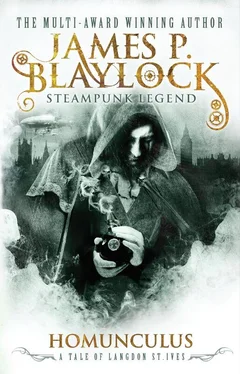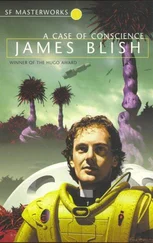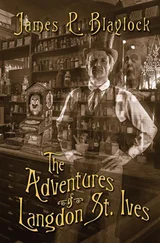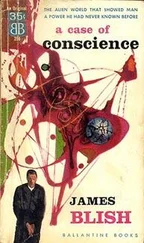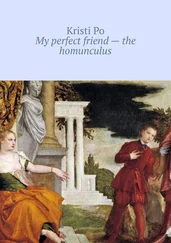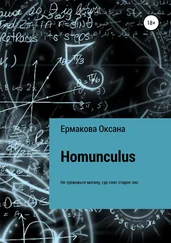James Blaylock - Homunculus
Здесь есть возможность читать онлайн «James Blaylock - Homunculus» весь текст электронной книги совершенно бесплатно (целиком полную версию без сокращений). В некоторых случаях можно слушать аудио, скачать через торрент в формате fb2 и присутствует краткое содержание. Жанр: sf_stimpank, на английском языке. Описание произведения, (предисловие) а так же отзывы посетителей доступны на портале библиотеки ЛибКат.
- Название:Homunculus
- Автор:
- Жанр:
- Год:неизвестен
- ISBN:нет данных
- Рейтинг книги:5 / 5. Голосов: 1
-
Избранное:Добавить в избранное
- Отзывы:
-
Ваша оценка:
- 100
- 1
- 2
- 3
- 4
- 5
Homunculus: краткое содержание, описание и аннотация
Предлагаем к чтению аннотацию, описание, краткое содержание или предисловие (зависит от того, что написал сам автор книги «Homunculus»). Если вы не нашли необходимую информацию о книге — напишите в комментариях, мы постараемся отыскать её.
Homunculus — читать онлайн бесплатно полную книгу (весь текст) целиком
Ниже представлен текст книги, разбитый по страницам. Система сохранения места последней прочитанной страницы, позволяет с удобством читать онлайн бесплатно книгу «Homunculus», без необходимости каждый раз заново искать на чём Вы остановились. Поставьте закладку, и сможете в любой момент перейти на страницу, на которой закончили чтение.
Интервал:
Закладка:
FOURTEEN
The New Messiah rode along into Mayfair with his eyes clamped shut so tightly that little flickers of yellow lightning shot out across the back of his eyelids each time the brougham bounced over a dip in the road. What, he wondered, could have gone wrong? What conceivable force could be responsible for the failing of the spirit of his poor, misused mother? She’d been declining — he could see that — ever since he’d brought her away from the laboratory of the accursed Narbondo. It was as if she had fallen asleep, as if whatever animating force she’d been imbued with had drained away. Was this a sign, an indication that his own vanity had to be curbed? But he was selfless, blameless. He hadn’t chosen to be what he was — the son of whom he was the son of. Had he? It had been thrust upon him, and he’d suffered for it, long years of deprivation. And here, when he had the means to sway great masses of people, when success lay within his grasp, the machinery of the spirit failed, ran down, fell mute.
He pressed his temples and looked up at the man next to him — a droopy-eyed, pasty man, one of Narbondo’s ghouls. The sight of him was tiresome, uncharitable as this might be. Shiloh couldn’t suffer it, wouldn’t suffer it. He pushed his head out through the curtain and railed at the driver. “Stop!” he shrieked. “Stop, you bleeding fool!”
The brougham lurched to a halt. The evangelist threw open the door on the street side. “Out!” he said tiredly. “All of you.” They stared at him stupidly. He picked up a heap of tracts on the floor and pitched them out into the dirt. “Fetch those.” The man beside him rose obediently, stepping out through the open door. The others followed, the last sailing face first into the road on the heel of the evangelist’s boot. The old man reached out and pulled the door shut. “Drive on!” he cried, and away the brougham raced, the old man alone now, contemplating his failure.
There was simply no accounting for it. Or rather there was, but he simply couldn’t see it. Something nagged at him — something about the business at Narbondo’s: the hands pounding on the piano, the ill-fated flight of the skeletal bird, his mother’s brief revitalization. What explained it? Surely not the capering hunchback with his yellow vapors. Something more had been in evidence. A spirit — that was it. Some presence had charged the room, had launched the bird. The explanation of it all lay just out of sight around a turning of his memory.
The box. Had that been it? Of course it had. Narbondo had set the box atop the piano, and straightaway had set off the playing, had stirred the corpse of the bird. What if, wondered Shiloh, squirming in his seat in the glare of sudden illumination, what if the box in Narbondo’s hands were the homunculus?
Had the hunchback left the thing in sight to mock him? Knowing that the creature in the box was, in fact, Shiloh’s father? A creature with power over life and death? The stinking swine! He’d known all along, hadn’t he? Or had he? Why was he so anxious to get hold of Nell Owlesby? And what of Nell Owlesby? Had she lied to him those long years ago in Jamaica? Impossible. She’d been too sincere, too much a product of her momentary passions. She could, of course, have been mistaken. There had, after all, been two boxes.
The evangelist stroked his chin. He’d been played, perhaps, for a fool by any number of people. But he’d have the box. That much Narbondo owed him.
Pratlow Street was silent. No one was about, not even a stray dog or cat. The moon, which had shone for an hour or so between the tilting buildings that lined the street, had long since drifted away. No light burned in Narbondo’s cabinet, the hunchback having departed for the night. His relative success with the remains of Joanna Southcote and knowledge of the whereabouts of the homunculus box had improved his mood, which had suffered from Pule’s failure to obtain Owlesby’s manuscript. Narbondo’s house call at Drake’s Wardour Street address had given him certain ideas, excited certain passions, and he dallied there into the evening.
The lights of Westminster Bridge were ample to read by; Bill Kraken had read in worse light. And the night sounds — the Thames rushing along beneath the bridge, hurrying toward the sea, the low murmur of conversation from the men who lounged against lampposts — all of it seemed to Kraken to mean something, taken collectively. Especially the river. There was a great deal of talk in Ashbless about rivers. He seemed particularly fond of them, and it was a restful chapter that didn’t call on the river to serve as an illustration for an abstraction which, without the tea-dark, swirling waters of the Thames to color it, would have been a lifeless and pale reflection of the world.
Kraken had wandered fitfully along the Thames all that day and most of the preceding night, after he’d failed to retrieve the box from the odious doctor. His life seemed to him to be played out. It was empty of substance — hollow. Most of his teeth were gone. His only possession beyond his clothes was the bullet-ridden copy of Ashbless, whose philosophers, try as they might to pour substance into the cavity of his soul, were powerless to help him. He was adrift, and would soon enough float out onto a gray sea.
He had speculated his way through Holborn and the City and Whitechapel, plodding along, lost in thought, finding himself late in the afternoon below Limehouse, looking out over the London docks. It was unimaginable that such commerce existed, that so many thousands of people labored to some particular end, that the basket of tobacco they hauled out of the hold at midday had to be hauled out just then, because at quarter till midday there had been twenty-five baskets atop it — one leading to another sensibly, each pulled off in turn, by design, according, it seemed, to an unwritten script.
But what pattern was it, he wondered while watching it all, governed the shambling life of Bill Kraken, squid man, pea pod man, thief. He’d been beaten senseless by criminals and then had become one himself. It didn’t stand to reason.
He’d ambled back upriver, past St. Katharine Docks and London Bridge and the Old Swan Pier, and everywhere people hurried along about their business, as if their lives were read out of a book, with a second page that followed a first, a twenty-fifth page that followed a twenty-fourth. But the pages of Kraken’s life had somewhere been dumped onto the road. The wind had caught them and blown them hither and thither over the rooftops. He’d tramped around, ever on the watch for them, but they were scattered and flown, and here he was, at the end of his tramp, leaning over the parapet in the center of Westminster Bridge and watching the black water of the Thames roil below.
He opened Ashbless at random. “Least of all the sins,” he read, “is gluttony.” That didn’t help him a bit. He closed his eyes and pointed. “The stone that the builder refused,” promised the text, quoting the Bible, “shall be the cornerstone.” He put the book down and thought about it. What was he, if not that very stone? Here were thousands — millions — of people chiseled just so, fit into a vast and sensible order, while he, wandering through London, could find no niche into which he could wedge himself. He hadn’t been chiseled so.
But how, he wondered practically, could old Bill Kraken be the cornerstone? What was it that would lend him a ticket to enter Captain Powers’ shop by the door when he’d gone out once by the window? The emerald, of course. That was the only route. But recovering it would almost certainly mean destruction, wouldn’t it? Kraken shoved Ashbless into his coat and set out apace. Destruction, perhaps, was less odious than other fates. His journey that day had made him weary, but his sudden resolution, his discerning purpose, no matter how fleeting or mistaken, drove him on with a steady gait, north up Whitehall toward Soho and Pratlow Street where he would settle a score with himself.
Читать дальшеИнтервал:
Закладка:
Похожие книги на «Homunculus»
Представляем Вашему вниманию похожие книги на «Homunculus» списком для выбора. Мы отобрали схожую по названию и смыслу литературу в надежде предоставить читателям больше вариантов отыскать новые, интересные, ещё непрочитанные произведения.
Обсуждение, отзывы о книге «Homunculus» и просто собственные мнения читателей. Оставьте ваши комментарии, напишите, что Вы думаете о произведении, его смысле или главных героях. Укажите что конкретно понравилось, а что нет, и почему Вы так считаете.
